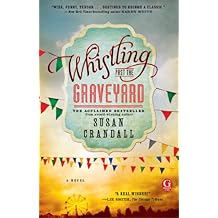Scriptures: Matthew 5:4, Psalm 147:3, Psalm 30:11-12, and Judges 19:25-30.
Saturday I turned on the television and learned of the massacre in El Paso. Later I read of the massacre in Dayton. They are compound fractures of a nation and a world where evil has again triumphed. As I watched coverage of the El Paso incident, the wretchedness of the human condition unfolded along with the consequences of that wretchedness. The faces of government representatives and service men and women showed their confusion pain and vulnerability. It scared me. I ached for a city where I once lived. I heard a clear call to prayer to all Christians to reach out, to speak up, to seek justice, love mercy and walk humbly with God.
Psalm 147:3 reminds us that God heals the brokenhearted, that He binds up their wounds. Still these are such deep wounds. They are lethal and without comfort. Where do we turn in the face of such carnage? We are helpless and for a moment hopeless.
Jesus tells us that the mourner will be comforted in Matthew 5:4. The Scriptures speak often of mourning. Psalm 30:11-12 says
You have turned my mourning into dancing for me;
You have taken off my sackcloth and clothed me with joy,
That my soul may sing praise to You and not be silent.
O Lord my God, I will give thanks to You forever.
I wonder what Scripture means by the mourner. Is it simply someone who grieves a terrible lose? Maybe Scripture speaks of the abandonment of God by a whole people. I think that both of those things can be applied to mourning.
We are the mourners this week. We will be comforted. It is hard to believe with wounds so fresh, but I will put my trust in the Lord.
Recently I had the pleasure of attending a local writing seminar. It is a labor of love from one of my friends. She sets out a beautiful three-day study. We read in preparation for the seminar. We read short stories and a novel, some poetry and some essays or short works on craft and style.
This year we read Slaughterhouse Five by Vonnegut. That book has plenty to grieve about. Those of you who have read it will know that it is a parable within a larger autobiographical tale about the bombing of Dresden in WWII. It is a scalding book, which unfortunately speaks urgently of the nature of man and man’s sin. Vonnegut speaks of a people gone astray. It is not for delicate ears or even for a Sunday morning in the house of the Lord. I did not like the book much. It affronts me.
But the carnage Saturday affronts me. Much of Scripture affronts me. The final chapter of Judges surely affronts most reader. We end in tears and confusion when we read of the concubines body's final disposition.
Recently I had the pleasure of attending a local writing seminar. It is a labor of love from one of my friends. She sets out a beautiful three-day study. We read in preparation for the seminar. We read short stories and a novel, some poetry and some essays or short works on craft and style.
This year we read Slaughterhouse Five by Vonnegut. That book has plenty to grieve about. Those of you who have read it will know that it is a parable within a larger autobiographical tale about the bombing of Dresden in WWII. It is a scalding book, which unfortunately speaks urgently of the nature of man and man’s sin. Vonnegut speaks of a people gone astray. It is not for delicate ears or even for a Sunday morning in the house of the Lord. I did not like the book much. It affronts me.
But the carnage Saturday affronts me. Much of Scripture affronts me. The final chapter of Judges surely affronts most reader. We end in tears and confusion when we read of the concubines body's final disposition.
But in the final verse we read God’s advice in an instance of appalling evil. Just imagine, the final verse says. Think about the incident. I hated learning of the massacres. I hated the news unfolding, thinking of lives snuffed out in an instant I hated thinking of the families forever wounded and in pieces. I didn't want to think of the mind that could conjure such horror and then exact it. But God tells us not to gloss over sin. He tells us not to ignore pain and suffering and the consequences of that sin. We should consider abominations in the light of day, with the aide of Scripture and with prayer. But we cannot shy away from the sinful nature of man and the urgent need of the Gospel.
The second thing this passage tells us is to act. We walk through this world as God’s children. We are not at liberty to forget our redemption. We are not at liberty to forget our sin. We should keep to prayer. We should endeavor to be in right relationship to God. We should examine ourselves and turn ourselves over to God.
The third thing Scripture says Judges 19:30 is, "speak up." This is not the place to point self-righteous fingers, but to cry out against sin. To weep, to mourn at the fact of it at it’s destruction at its horror. We cannot shrink from the world as David notes in Psalm 55:6-8 when he finds himself wishing for a vacation from this worldly world.
David tells us later in Psalm 55 that God is the judge and arbiter. He reminds us that this is not our home. Our home is with our Maker, the King of Heaven and earth, the Everlasting, Unchanging Merciful God and our Lord Jesus Christ our Redeemer.
Thank you for reading. Blessings and comfort now and for the weeks to come.
Bev
also posted at Jumping into the Deep























 In
In 